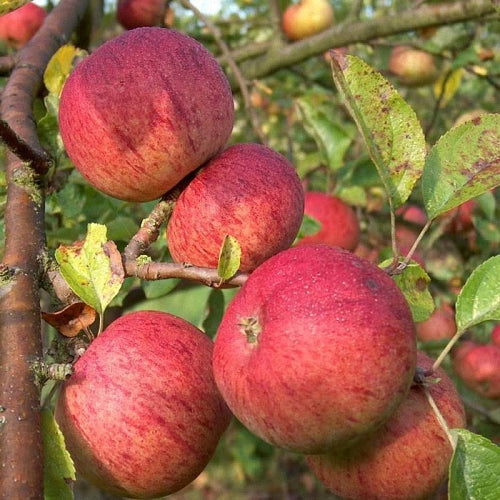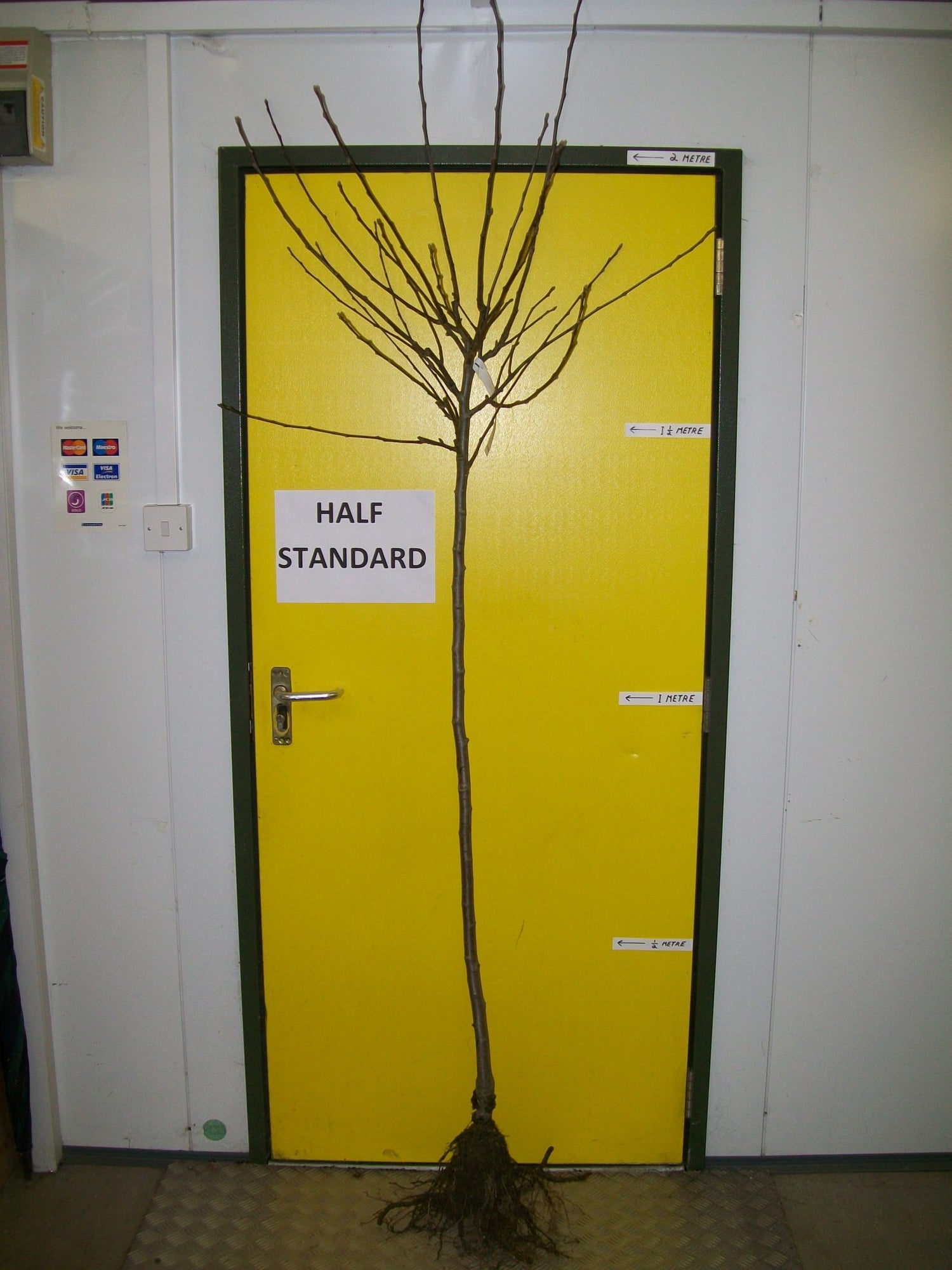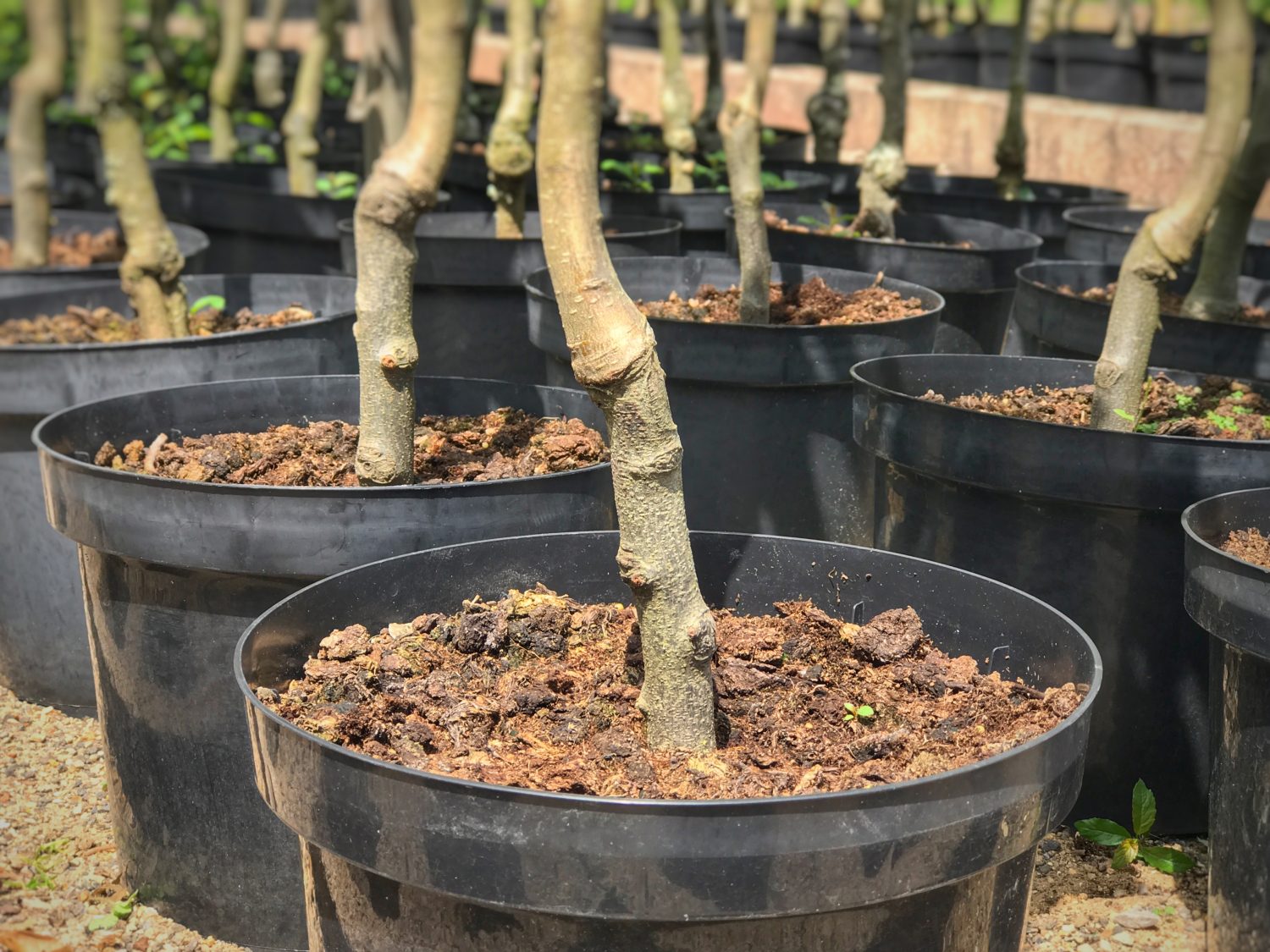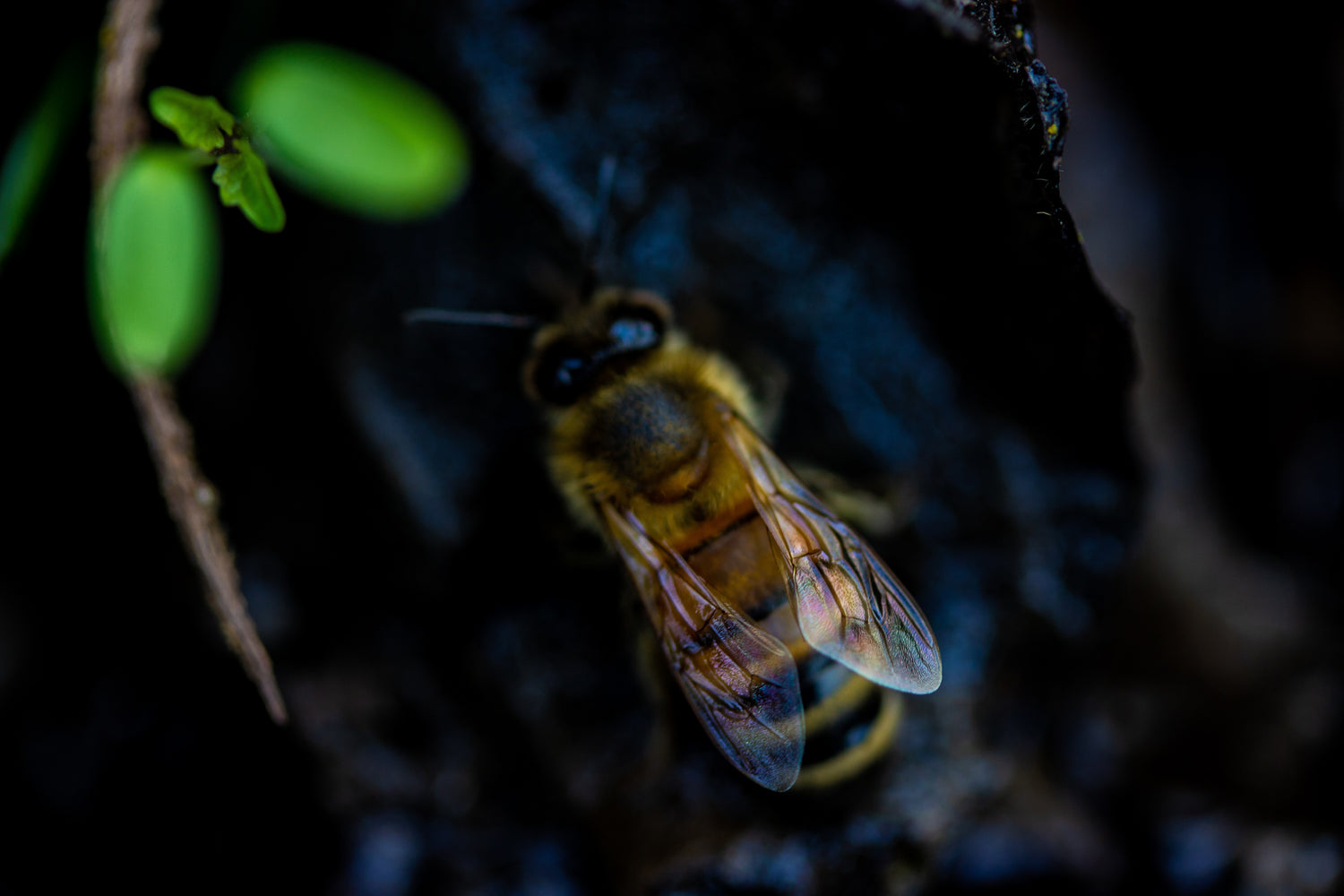

Bare Root
Bare root trees are field grown and lifted in the dormant winter period and can be planted from November to March
These are examples of the form and size of tree you’ll receive when you order from us.
Please note that they may differ dependent on the characteristics of the individual variety.

Pot Grown
Pot grown trees can be supplied all year round and planted anytime. They are usually in 12 or 15L pots

Pollination
Pollination:
Pollination can seem like a complicated subject but it is not as much of a worry as people think, most people are likely to have good pollination in their garden due to the close proximity of other gardens.
Unless a tree is self fertile it will require a pollination partner in order to fruit.
All tree fruits are divided into flowering groups, i.e. varieties that flower at the same time fall into the same group. A variety from group 2 will cross with any other variety from group 2 and also any variety from adjacent groups 1 and 3. This is the same for all the flowering groups. Some trees are triploids, which means that they are no use as a pollinator and require 2 compatible varieties that pollinate each other.

